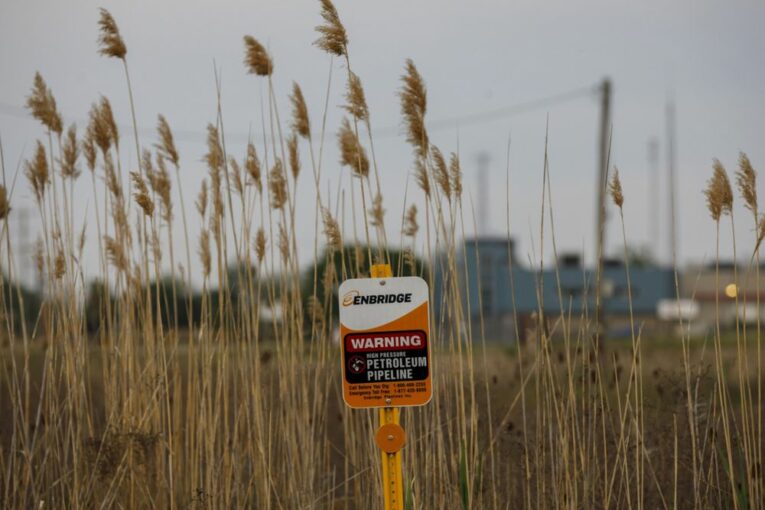
CALGARY — Ottawa wants to negotiate directly with U.S. President Joe Biden’s administration in Washington, D.C., to keep oil flowing into southern Ontario through the controversial Line 5 pipeline.
The Canadian federal government formally invoked the 1977 Transit Pipelines Treaty on Monday, initiating a dispute resolution process contained in the agreement that sets up direct talks with Washington over the pipeline, which carries 540,000 barrels of oil per day from Alberta, through Michigan, to southern Ontario refineries.
“In response to Michigan’s efforts to shut down Line 5, Canada has raised its significance for Canadian economy and energy security to the highest levels of the U.S. federal government,” Foreign Affairs Minister Marc Garneau said in a statement Monday. “We have also stressed the importance of fully respecting and implementing the international agreements that are in place between our two countries.”
Garneau added that 68-year-old Line 5 “has been the safest and best way to transport Canadian hydrocarbons from Western Canada to central Canada.”
Michigan Governor Gretchen Whitmer has tried to shut the line down on multiple occasions including by pulling an easement for the pipeline to cross the Straits of Mackinac, a Great Lakes waterway, over concerns about a potential spill.
Calgary-based Enbridge Inc., which owns Line 5 and is North America’s largest pipeline company, has been fighting Michigan in federal court over the pipeline. Last month, court-ordered mediation between the two sides broke down.
“We greatly appreciate the efforts of ‘Team Canada’ — from the Government of Canada to the provinces of Ontario, Quebec, Alberta and Saskatchewan for their commitments and efforts to keep Line 5 open,” Enbridge spokesperson Tracy Larsson said in an emailed statement.
“We also greatly appreciate their desire to advance the construction of the Great Lakes Tunnel Project,” Larsson said, referring to the company’s plans to replace Line 5 with a new pipe built in a concrete tunnel beneath the floor of the Straits of Mackinac to reduce the risk of a potential spill.
In a letter to the federal judge presiding over the case, Gordon Giff, legal counsel for the Canadian government said Canada had formally invoked Article Six of the 1977 Transit Pipelines Treaty.
The treaty was initially pushed by the U.S. government at a time when oil producers were interested in building a pipeline from Alaska through Canada to the Lower 48 states. It states that “no public authority in either party shall institute any measures … which are intended to, or which would have the effect of, impeding, diverting, redirecting or interfering with in any way the transmission of hydrocarbon in transit.”
The treaty does provide a few exceptions, including “in the event of an actual or threatened natural disaster.”
“Canada’s Building Trades Unions are fully in support of the Government of Canada’s actions to ensure the safe and continued operation of Enbridge’s Line 5 to protect thousands of jobs on both sides of the border,” Sean Strickland, executive director of Canada’s Building Trades Unions, said in a release Monday.
“We’re strongly advocating to protect the jobs connected to the continued safe operation of Line 5 while looking forward to the partnership between Enbridge and the Building Trades to build the Great Lakes Tunnel project,” Strickland said.
American environmental groups said the Canadian federal government is invoking the treaty just as another aging underwater pipeline, operated by Beta Offshore Co., leaked in California and spilled 3,000 barrels of oil into the Pacific Ocean, leaving an oil slick on Orange County beaches.
“On the very day we’re seeing the effects of an oil pipeline rupture on the West Coast, Canada is seeking to increase the risk of an oil rupture in the Great Lakes by delaying the orderly shut down of Line 5,” Beth Wallace, Great Lakes conservation manager for the National Wildlife Federation, said in a statement.
“Michigan has the right and duty to protect the Great Lakes from the devastation we’re seeing in California and Canada and should be seeking alternatives instead of delays,” Wallace said.
With additional reporting from Reuters
• Email: [email protected] | Twitter: geoffreymorgan
You can read more of the news on source
